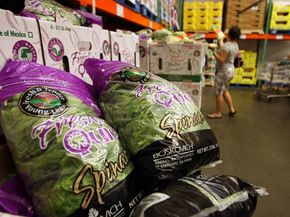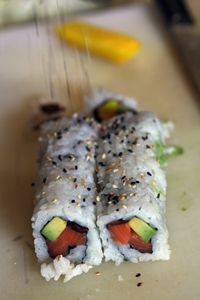Dopamine is a neurotransmitter involved in the brain's reward system. Called the "feel-good hormone" — it functions as both a neurotransmitter and a hormone — dopamine plays a role in movement and sleep as well.
Low dopamine levels are associated with depression and Parkinson's disease, while too much dopamine is associated with attention deficit hyperactivity disorder (ADHD) [source: HealthDirect].
A few foods are high in dopamine, including avocados, apples, bananas, beans, eggplant, peas, plantains, oranges, spinach, tomatoes and velvet beans [source: Briguglio].
However, simply eating foods high in dopamine won't release dopamine in your brain. That's because dopamine does not readily cross the blood-brain barrier — it must be synthesized in the body [source: Gasmi].
Levodopa (l-dopa) is a precursor to dopamine found in apples, avocados, bananas, beets, dark chocolate, eggs, fish, green vegetables, legumes, meat, milk products, oats, olive oil, oregano, peanuts, peas, pumpkin seeds, poultry, rosemary, sesame seeds, sea vegetables, soy products, spinach, tomatoes, turmeric, velvet beans, watermelon and wheat.
In order for the body to produce dopamine, you need both l-dopa and adequate levels of the amino acid l-tyrosine, found in nearly all protein-rich foods, like meat, dairy products and legumes [source: Gasmi].
So, can upping your protein intake increase dopamine levels naturally? While it's possible that eating foods containing building blocks of dopamine (l-dopa and l-tyrosine) may lead to improved mood, more research is needed to determine whether these foods actually boost dopamine levels in the blood.
Then, there's the matter of whether all the dopamine you've synthesized will actually attach to the dopamine receptors on your brain cells.
The good news? If you eat a balanced diet and regularly incorporate lean protein like lean meats, nuts and seeds, you likely already have everything you need for healthy dopamine production in your body.
If you think you have a dopamine deficiency, talk to your doctor. If you want to change your diet, consult a registered dietician to make sure you're getting proper nutrition.





